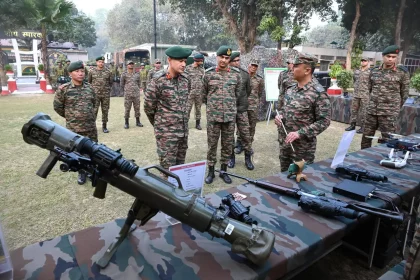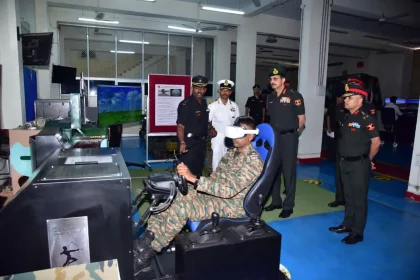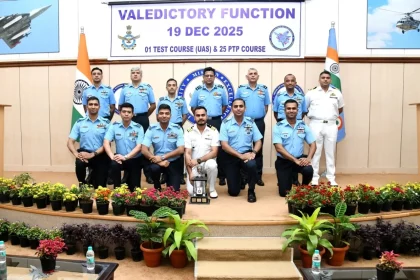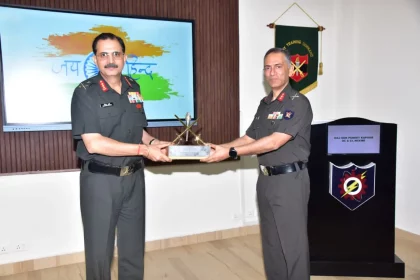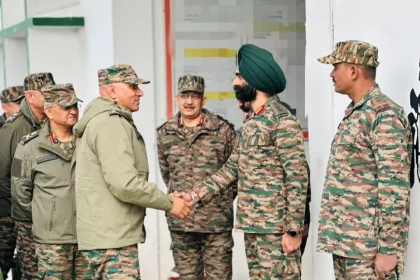Major General Naveen Mahajan Reviews Operational Preparedness of Saidpur Brigade
Golden Key Division Commander commends Saidpur Brigade for professionalism, technology integration, and high readiness levels.
General Upendra Dwivedi Pitches ‘IKIGAI’ Framework at Japan-Hosted Land Forces Summit
India Outlines Vision for Stronger Indo-Pacific Army Cooperation Through Multilateral Land Power Partnership.
Lt Gen Devendra Sharma Reviews Indigenous Simulator Development at SDD
ARTRAC Chief Reviews AR/VR and Simulator Innovations at SDD.
Valedictory Function of UAS and Test Pilots Courses Held at ASTE, Bengaluru
Graduating Officers to Boost Indigenous Defence Aerospace Capabilities.
Lt Gen Devendra Sharma Visits MCEME, Inaugurates Indian Army’s First Additive Manufacturing Centre of Excellence
ARTRAC Chief reviews training initiatives at MCEME, inaugurates ‘Rachnalaya’ to boost indigenisation, innovation, and equipment sustainment in the Indian Army.
Lt Gen Pratik Sharma Reviews Security Preparedness in South Kashmir
Focus on Joint Intelligence, Coordination and Operational Readiness in Challenging Security Environment.

